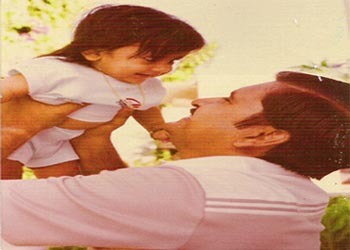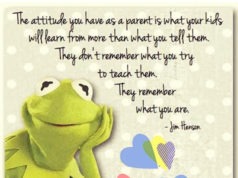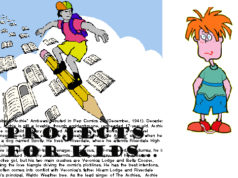Development of a child from early childhood is a new parental concern and the use and value of development schedules for parents remain just as pertinent in the technology age. Its own cries teach the young infant the first lesson in purposeful social behavior and physiologists say that crying brings comfort and security in the form of parents.
By two months, a baby has usually discovered that smiling and vocalizing also pay off in keeping people’s attention. Social signals are gained gradually as the infant grows up such as facial expression, hand gestures, noise and by three and gradually, notions of sharing, taking turns, cooperation and other lessons in coping is learnt by the child. It is evident that:
* the path of a child’s lifetime development is laid down mostly by the age of three.
* exposure to a wide range of experiences from the very first is the most important factor in cognitive (intellectual) development
* the more experience a child has as an infant and toddler; the greater its potential for growth but perhaps the most interesting result is that quality childrearing overcomes adversity.
Early childhood development is separated into groups of skills. Each child has own ways of learning and flowering to bloom in his own pace. Some are slow branded whereas some are fast learners. These groups of learned skills are based on what both parents and researchers have observed over the years, and the results of these observations are called “developmental schedules” and they represent what the large majority of children are able to do at a particular age.
Generally, most of the children start walking about 12 months of age and such ‘milestones’ are determined what is called the usual ‘norms’ where majority of the children follow the same pattern of learning. Slowly, there comes in the discipline which can be thought of as the daily training that parents provide by action, word and example to shape the kid’s behavior. Today, many parents helplessly exclaim ‘Today’s kids are grown up and don’t listen’ Now, the question here is ‘Has the child been taught or rather motivated to develop self esteem, discipline, respect, self control or the methods providing opportunities for development schedules?’ Development schedules are just the tools to assist parents in determining the child’s development, learning the little things in life to take big steps to climb ahead.
The developmental schedules are generally separated into categories as the kids grow up and with many different labels, but broadly to sum up:
Motor development skills. Movements of walking, running, building blocks at a young age. Taking care of own self and not being pampered too much. Afterall, one who falls, always rise up with experience. Many parents are concerned ‘Oh, you will fall down the stairs. Wait, give me your hand’ Instead, allow the kid to walk on his own feet and watch there, with loving care
Speech and communication styles.Once the child learns the first vocabulary words, it’s the right time to increase his list continuously. Reading skills help develop the child and fantasy world helps the child to dream. Speech flow comes naturally with communication as a continuous progress with the kid. Many parents complain ‘My child cannot speak in English even though he is going to English medium school’ Now, the whole environment from childhood is different and as a parent, also teacher, have formed a habit to adopt mother language. So, the child is only going to follow the pattern. Speech comes with continuous thought process and the child is influenced with the supportive parent who can be the difference between the child’s academic success and failure. A parental encouragement is the greatest impact on the child.
Social skills. Relationships with others including emotional development is very important for development schedule. Parents are concerned to raise kids to share values and children learn quickly what kind of behavior their parents approve or disapprove. Parents make implicit statements about their own values and ones they want their children to adopt. Unconsciously, the child observes with what degree of sincerity and consistency the parents live by their declared values and as they grow older, they become quite adept at recognizing uncertainty and confusion in their parent’s value system and can become disenchanted with following the rules when deeds do not match words. The child would not adopt the same system of living like a parent in new generation but his social and emotional well being depends on the discipline and values he gains from his upbringing.
Self help skills. This is a major necessity and kids no longer dependant for his own learning. They find a way out to learn their way and sometimes, parents lag behind to teach them what they want to learn. For eg. Computing in new age has led many kids learn by self and helping the parent know and understand the concepts. Understand and love is the key factor here and supportive parents provide development schedule to kids to learn quite naturally. It requires encouragement and motivation, a parental backing and the best kind of support becomes active and specific. Parents should insist on regular homework be done, discuss their subject liking and disliking, praise a well done assignment and sure, you raise a kid who learns to self help and learn things in a natural course where academic studies then, do not become a routine.
Cognitive skills. The Swiss psychologist Jean Piaget called concrete operational intelligence which means to think logically about concrete things. In middle years of development, childhood mind develops the capacity to distinguish right and wrong, hear another person’s point of view, play games according to rules and master the sequential mental tasks upon which reading, arithmetic and other school tasks are based. As kids gain cognitive skills or say, reasoning with own mind, they come increasingly to see their minds and their knowledge as sources of strength and they can rely on. This becomes important as they move ahead to next development towards adolescence.
Child development schedule serve a parent to identity the need of kids and provide regular monitoring of development. The development stage of the kid is looked upon and disabilities are foreseen. Evaluation is done and the kids accurate profile is prepared. Report sheets for examinations are fine but development schedules, their IQ, EQ and SQ is also now a major part to be accessed for a sound well being. Some kids are capable and some are not but the ‘Child Assessment’ with the Development schedule becomes a measured expression of the child’s abilities. This would not be to judge the future potential or intelligence but parents can pursue to follow and find these things as first teachers and experts to up bring kids as sound being. Future development opportunities can thus be provided to the child depending on how the kid fair and parents or the teachers can be the ‘Consultants’ observing the child and what would be helpful for their Development. This is the major point to be focused in today’s technology time growth.
Article from my Book ‘Guardian of Angels’ – click to read more and buy here
{jathumbnail off}








